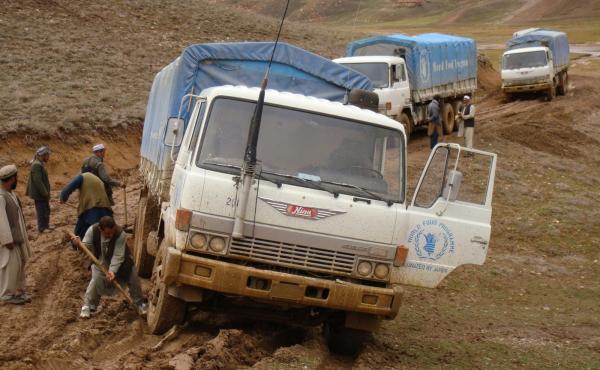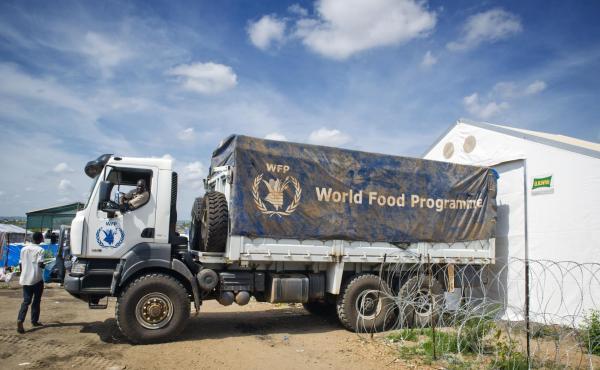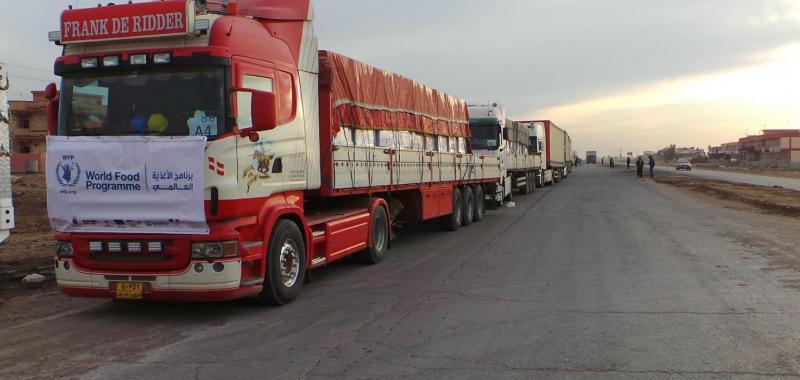Project overview
WFP is exploring autonomous vehicles as a potential solution to delivering food in conflict areas without risking people’s lives.
Getting food in conflict zones has become increasingly more complex in recent years. Air strikes, attacks on humanitarian convoys, as well as difficult or blocked access to besieged and hard-to-reach areas, are only some of the barriers between the World Food Programme (WFP) and the people it serves. These challenges have left aid agencies with the question of how to deliver food assistance in the "last mile", without risking the lives of aid workers.
Autonomous driverless trucks are amongst some of the promising answers to the issue of assistance in dangerous or inaccessible environments. Preliminary research into a solution that could enable the delivery of humanitarian relief, not as vulnerable to air strikes as aviation, yet resilient to ambushes and capable of handling difficult terrains, has already led to the surfacing of a series of options that WFP is keen on delving into as quickly as possible.
Far away from conflict zones, Silicon Valley leaders such as Tesla, Google, Uber and other car manufacturers are refining the technology and testing it to replace drivers and human error in long-haul journeys. For example, Uber Freight is using self-driving trucks to deliver beverages across the USA without human input, and Volvo is testing the technology to innovate transport in the mining sector.
WFP is now joining forces with the German Aerospace Center (DLR) to develop a blueprint for remotely piloted and self-driving technology for emergency response in inaccessible areas. Harnessing DLRs expertise in mobility research and space technology, WFP and DLR have elaborated the basic vehicle requirements and developed the first technical and operational concepts to equip and operate resilient, remote-controlled trucks delivering goods. This includes concepts of operation centres, from where specialists would control the trucks, and global connectivity to prepare for an envisaged pilot.
We need to continue looking for innovative ideas, such as the self-driving trucks, to prepare for disasters and avert tragedies through rapid response. WFP welcomes partners who can help escalate the search and turn a vision into a concrete solution.
For more information on how WFP is developing self-driving technology, please contact global.innovation@wfp.org.





